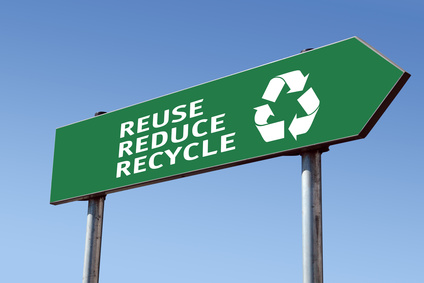Tips for Reuse, Reducing WASTE, and Recycling
- Reduce Your Packaging: Buy bulk or concentrated products when you can.
- Reduce Toxicity or Learn How: Recycle your batteries and use batteries with reduced mercury.
- Select Reusable Products: Sturdy, washable utensils, tableware, cloth napkins, and dishcloths can be used many times.
- Use Durable Products: Choose furniture, sports equipment, toys, and tools that will stand the test of time.
- Reuse Products: Reuse newspaper, boxes, shipping "peanuts," and "bubble wrap" to ship packages.
- Recycle Automotive Products: Take car batteries, antifreeze, and motor oil to participating recycling centers.
- Buy Products Made From Recycled Material: Many bottles, cans, cereal boxes, containers, and cartons are made from recycled material.
- Compost or Learn How: Food scraps and yard waste can become natural soil conditioners.

Benefits of Recycling
- Recycling protects and expands U.S. manufacturing jobs and increases U.S. competitiveness.
- Recycling reduces the need for landfilling and incineration.
- Recycling prevents pollution caused by the manufacturing of products from virgin materials.
- Recycling saves energy.
- Recycling decreases emissions of greenhouse gases that contribute to global climate change.
- Recycling conserves natural resources such as timber, water, and minerals.
- Recycling helps sustain the environment for future generations.
Source: EPA
